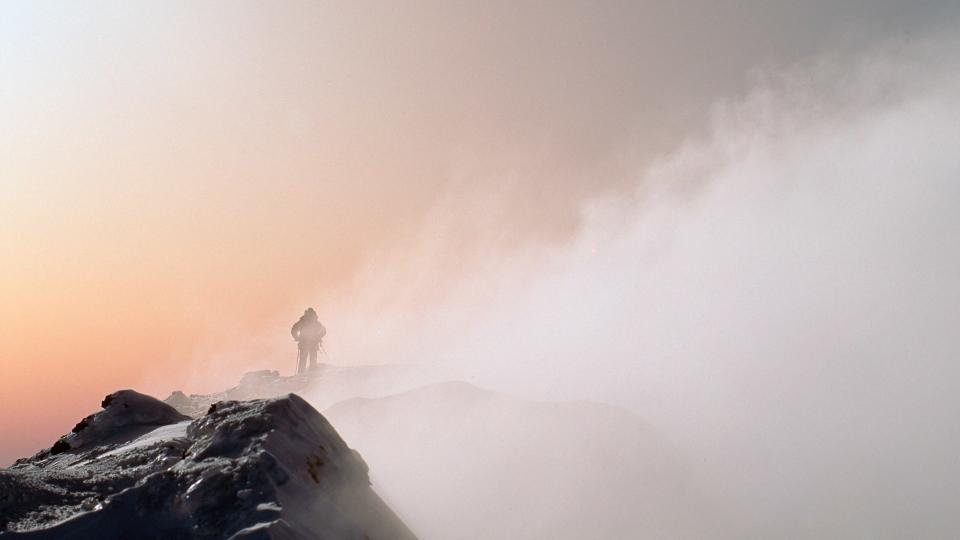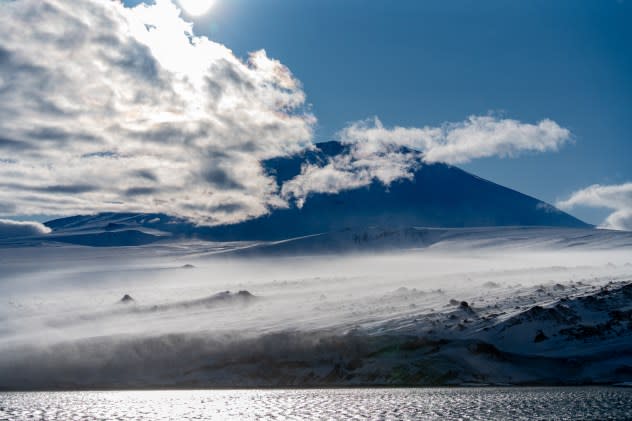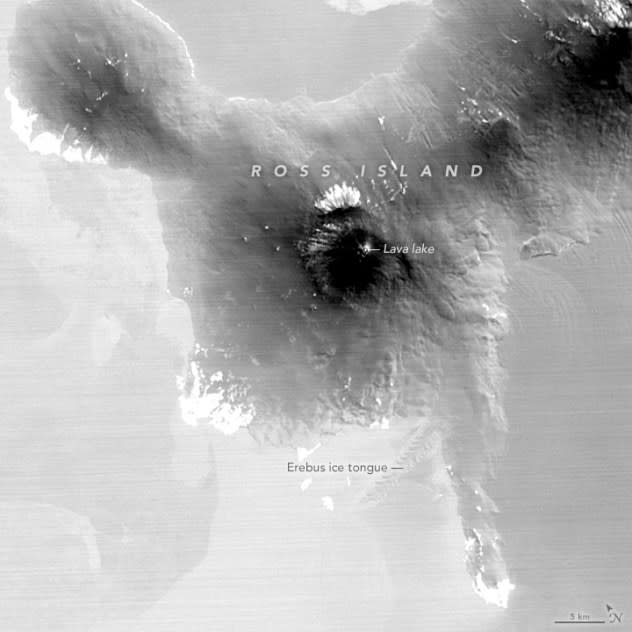One of Earth's most active volcanoes spews $6,000 in gold dust every day
- Oops!Something went wrong.Please try again later.
 |
Mount Erebus is the southernmost active volcano on Earth, and one of only two in Antarctica. Its summit is 12448 feet. The volcano was discovered and named by Sir. James Clark Ross in January of 1841. (Credit: Tim Bieber/Getty Images) |
It sounds like a dream, but it's true; in Antarctica, gold rains from the sky. Tucked in among the glaciers, fiery Mount Erebus is the southernmost active volcano on Earth, providing a bit of heat amid the frozen landscape.
The frozen continent features 138 volcanoes, according to a 2017 study, with around nine of them reported as active. With a summit elevation of 12,448 feet (3,794 meters), Mount Erebus is the most well-known.
Erebus is one of three volcanoes that form Ross Island, and it's said that it was erupting when it was discovered in 1841 during the voyage of Captain James Clark Ross, who carried out important magnetic surveys in the Arctic and Antarctic and discovered the Ross Sea and the Victoria Land region of Antarctica. 'HMS Erebus' was the name of one of his ships.
 |
A climber stands on the edge of the crater of Mount Erebus, 12,500 ft above sea-level, on Ross Island, Antarctica. It is the most southern active volcano. (Credit: Galen Rowell/Getty Images) |
Scientists still observe the volcano through the Mount Erebus Volcano Observatory and conduct field campaigns to look for extreme life forms. The largest Antarctic settlement-McMurdo Station, operated by the United States-is located about 25 south of Mount Erebus and is within sight of the volcano.
 |
Satellite images of Mount Erebus from 2013. (Photo credit: NASA) |
 |
Satellite images of Mount Erebus from 2013 show the lava lake at its center. (Photo credit: NASA) |
Satellite images of the volcano reveal a lava lake that's been bubbling since at least 1972, according to IFL Science.
The volcano regularly pumps out plumes of gas and steam and has been known to eject boulders of partially molten rock known as "volcanic bombs."
While volcanic bombs are exciting, it's the bursts of gas spraying tiny crystals of metallic gold that surprise scientists, who estimate the volcano spews around 80 grams of gold a day - that's worth around $6,000.
The gold has been found hundreds of miles away from Mount Erebus. Antarctic researchers have detected traces of the gold dust in ambient air up to 621 miles away from the volcano.
Want next-level safety, ad-free? Unlock advanced, hyperlocal severe weather alerts when you subscribe to Premium+ on the AccuWeather app. AccuWeather Alerts™ are prompted by our expert meteorologists who monitor and analyze dangerous weather risks 24/7 to keep you and your family safer.






